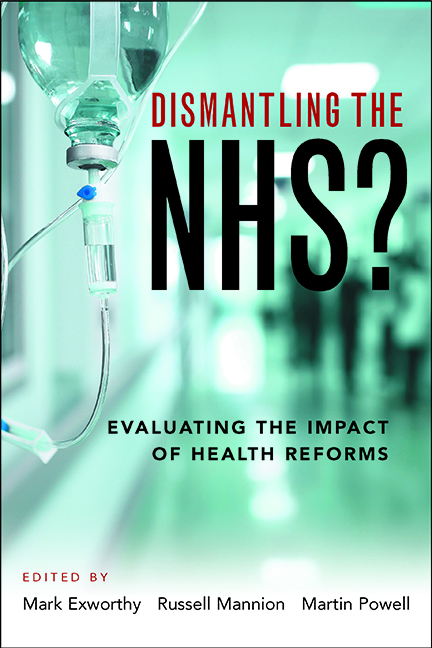Foreword
Published online by Cambridge University Press: 05 April 2022
Summary
In the history of the National Health Service, the period from 2010 to 2015 is remarkable for the transformation in the policy landscape that took place under the Coalition Government. By the time the Coalition Government left office, the preoccupations that had dominated its early years were overshadowed, indeed displaced, by a single issue: the £30 billion question. How was the NHS to cope with the twin pressures of unprecedented fiscal constraints and unprecedented demands?
In 2010 Andrew Lansley's White Paper, Equity and Excellence, was widely seen – and bitterly resisted – as an attack on the very essence of the NHS, threatening to bring about a period where privatisation and competition would end in disintegration. It was (at best) an exaggerated perception. Conceptually Lansley's proposals represented continuity – taking the logic of predecessor governments one step further – even while throwing the NHS into organisational turmoil. Nevertheless the perception shaped much of the debate leading up to the passage of the Health and Social Care Act in 2012, leaving a miasma of mistrust and apprehension.
Yet in 2015 when the Coalition Government left office, the scene had changed radically. In many respects the Lansley package had become something of a historical curiosity, reflecting the preoccupations of a bygone age. Concern about strategies for survival displaced ideology as a new policy agenda took shape. For not only were the Coalition years a period of unprecedented fiscal austerity for the NHS, with more of the same in prospect. On top of the demands generated by an ageing population and a creaking social care system, however, Coalition ministers added to the pressures on the NHS. In response to scandal more staff had to be hired by trusts already fending off fiscal deficits while ever more information advertising NHS shortcomings was published.
So we come to the £30 billion question: the gap between what the NHS expected to need by 2020 and was likely to get. It was in answering this question that NHS England set out the new, emergent agenda in the Five Year Forward View, the manifesto of the NHS's national leadership. The £30 billion gap by ‘transforming’ the NHS, as well as pursuing policies designed to reduce demands by improving population health.
- Type
- Chapter
- Information
- Dismantling the NHS?Evaluating the Impact of Health Reforms, pp. xix - xxPublisher: Bristol University PressPrint publication year: 2016



